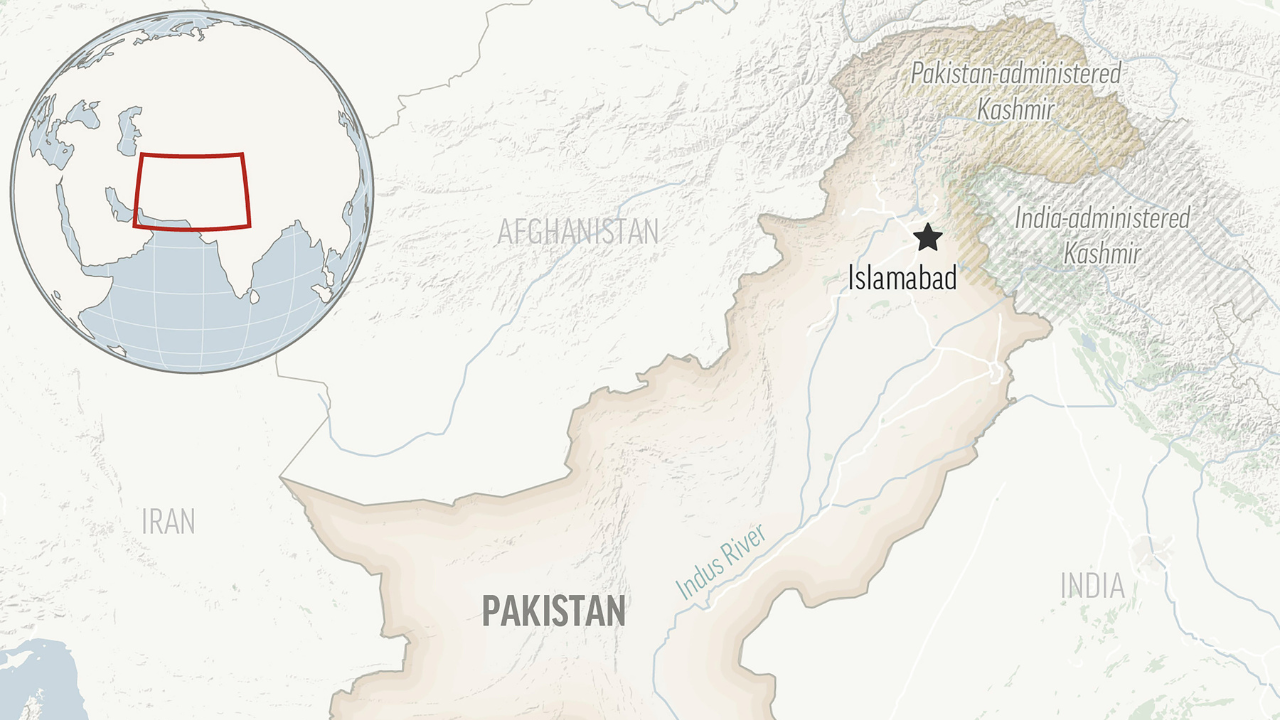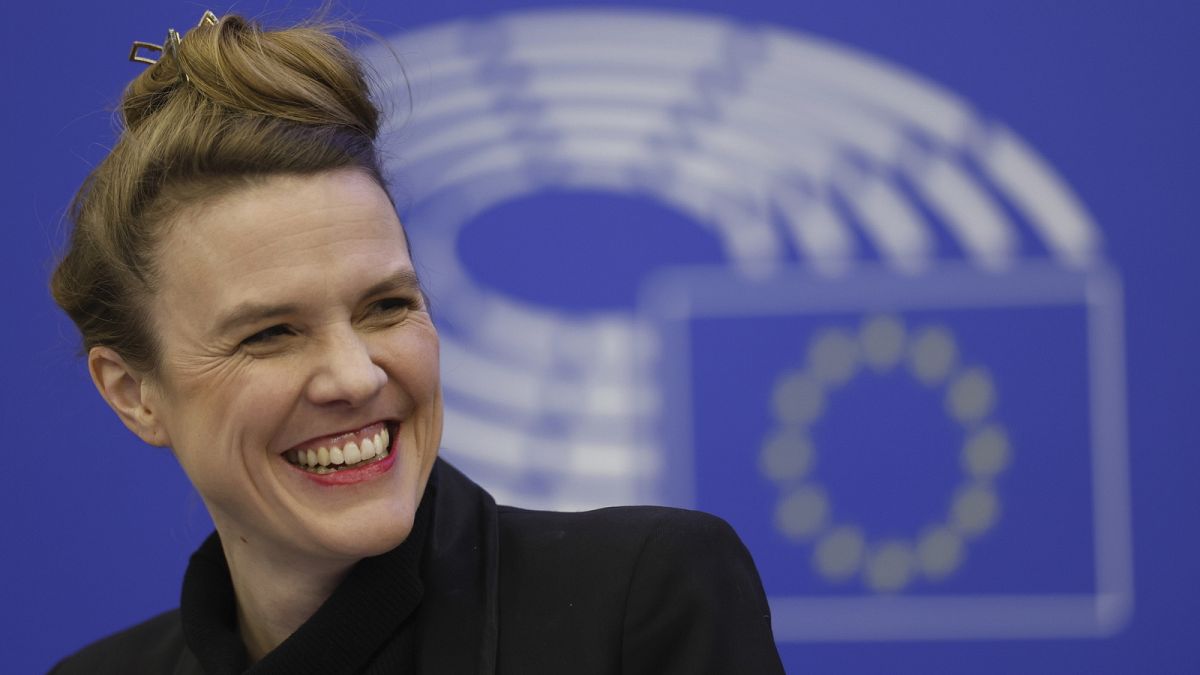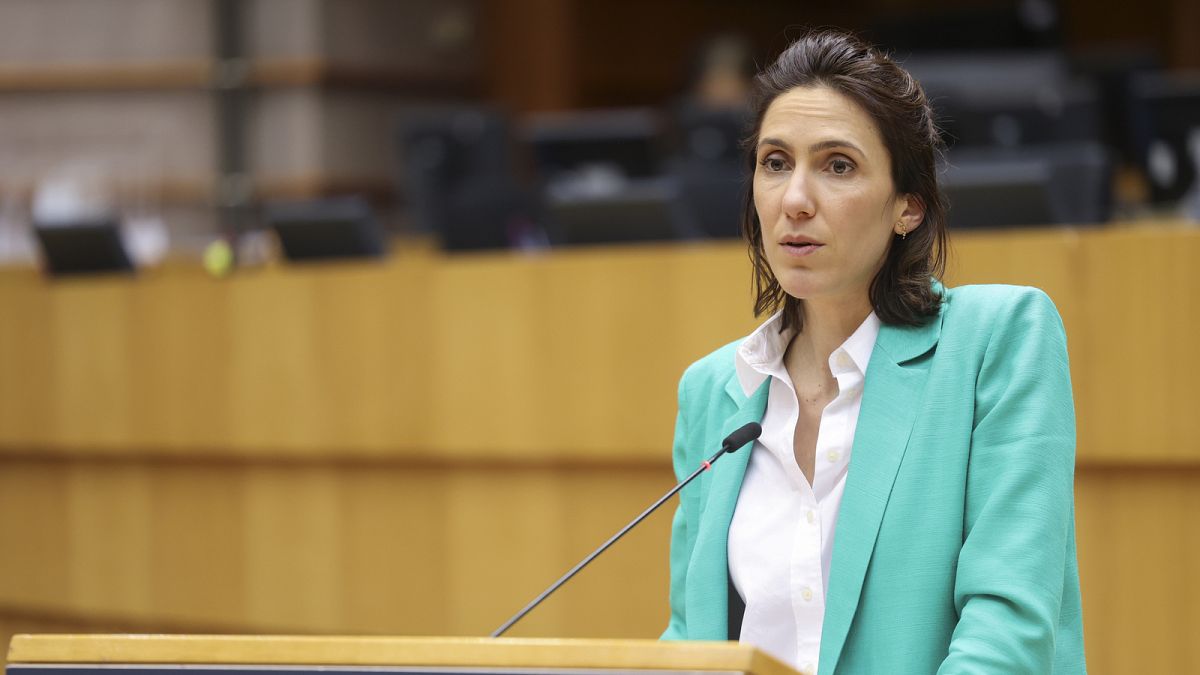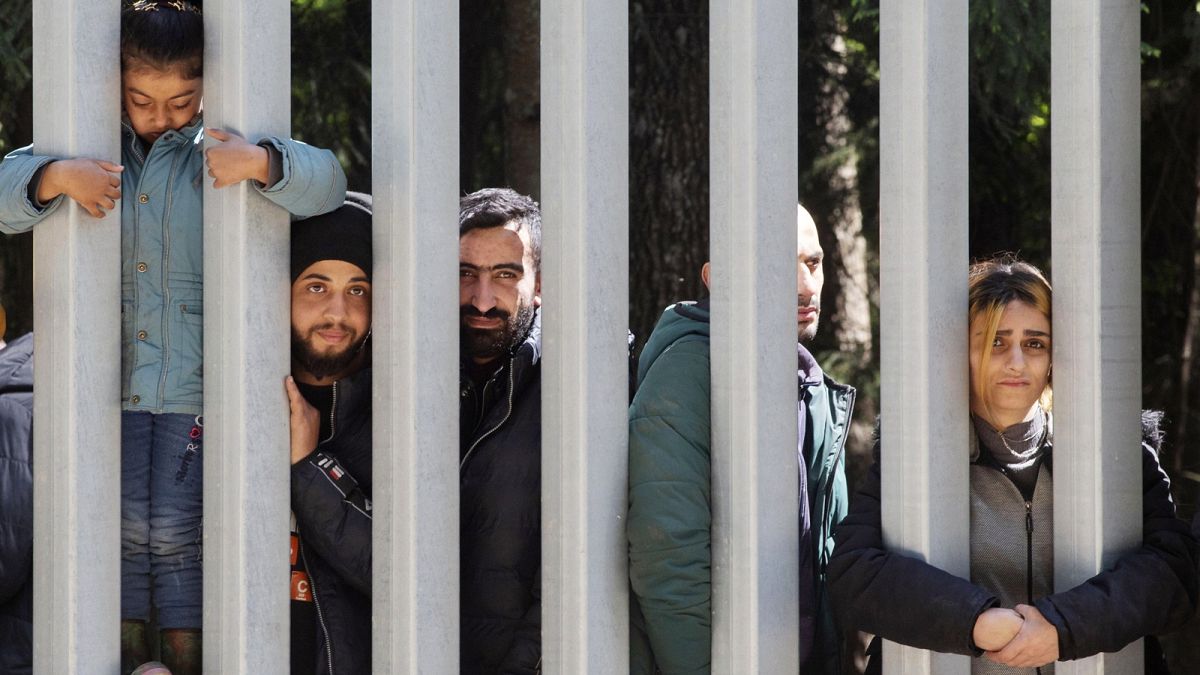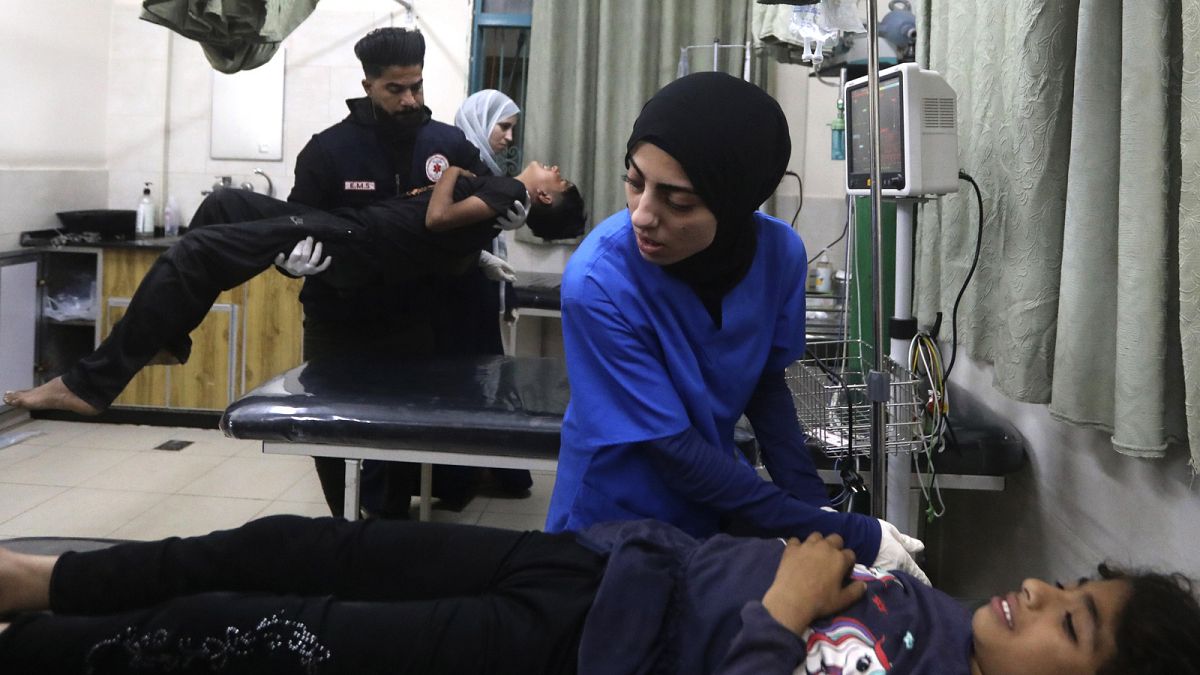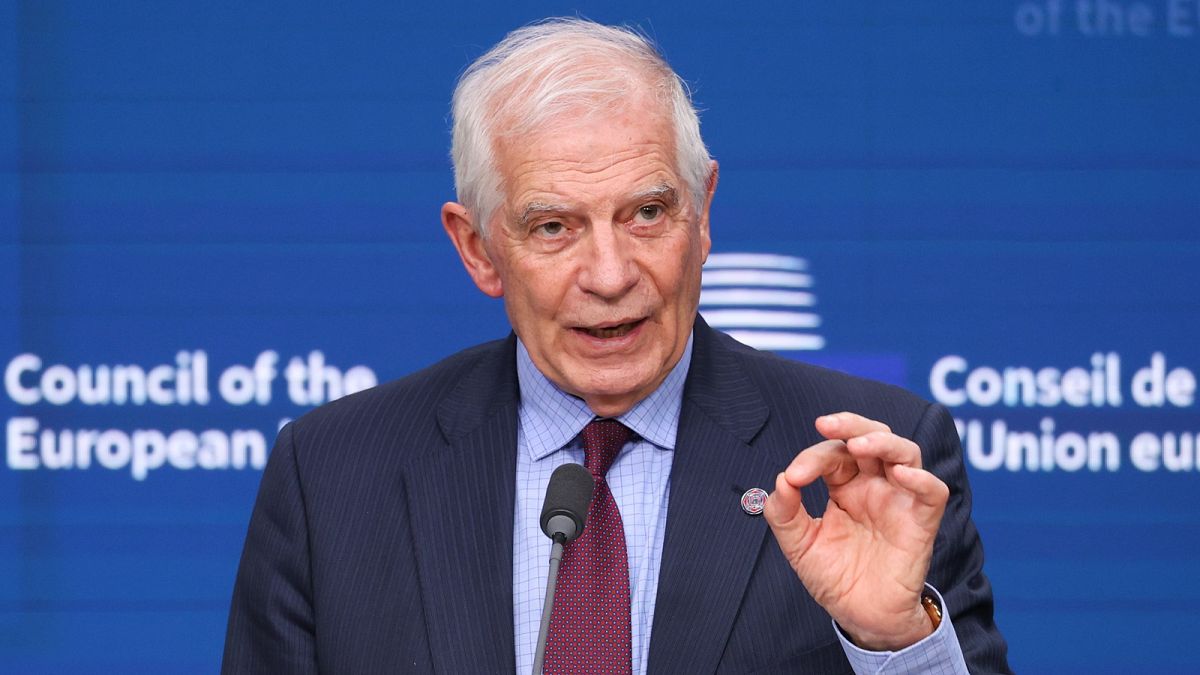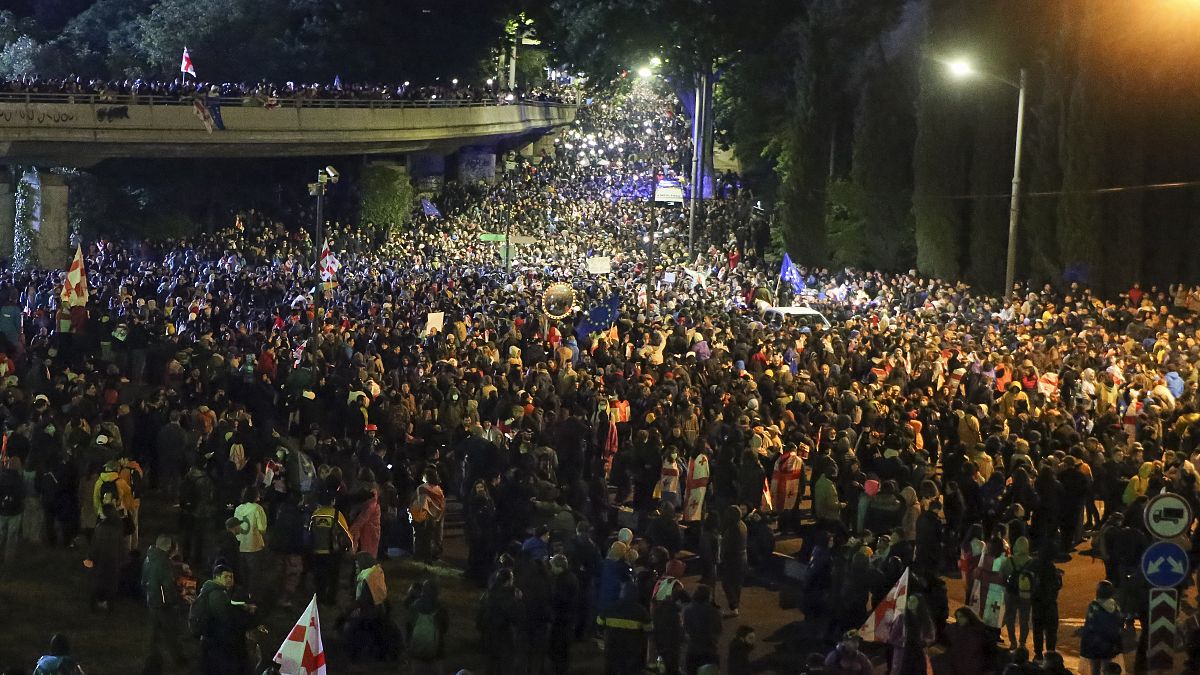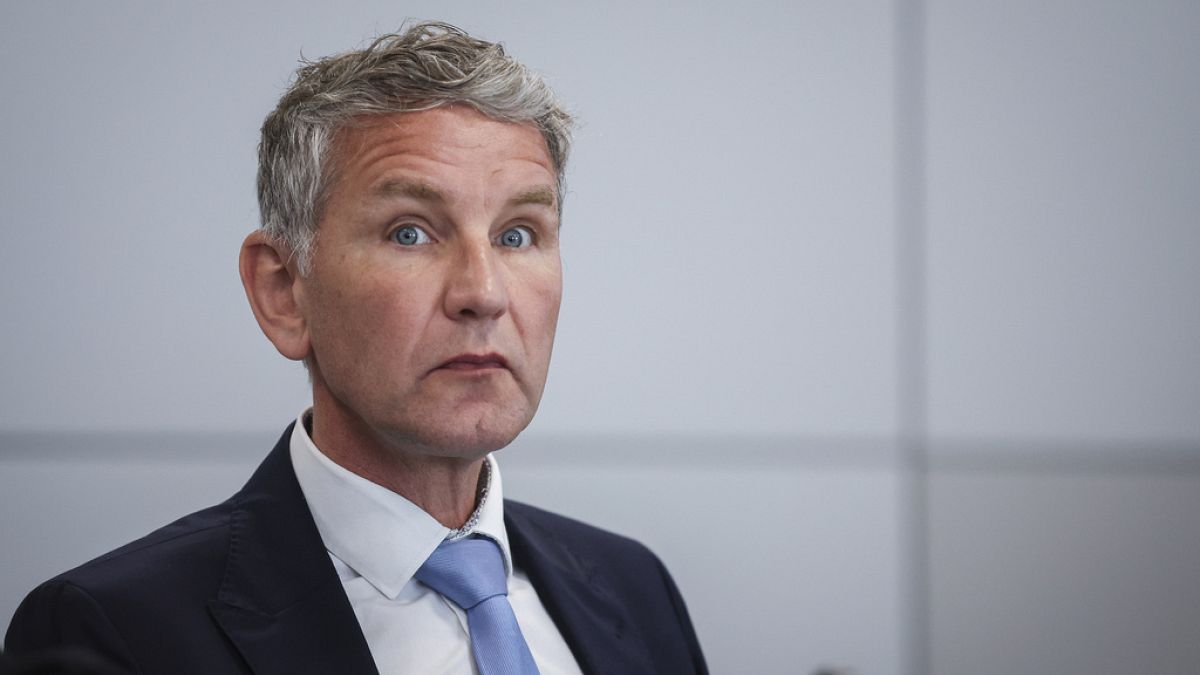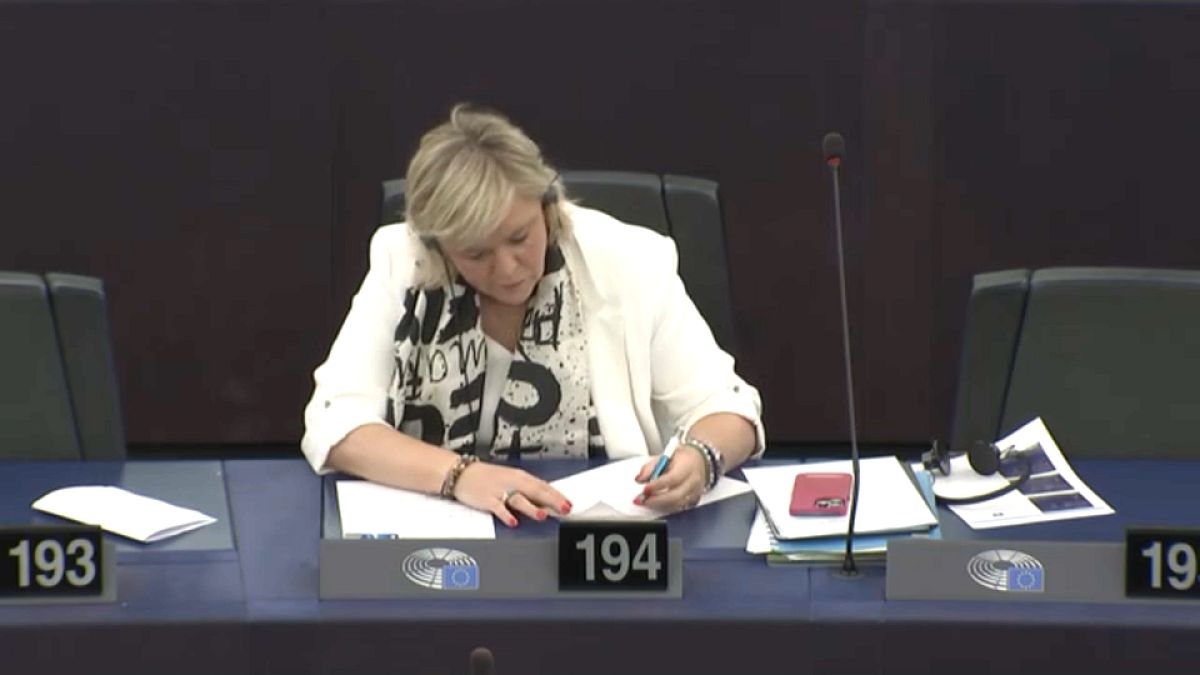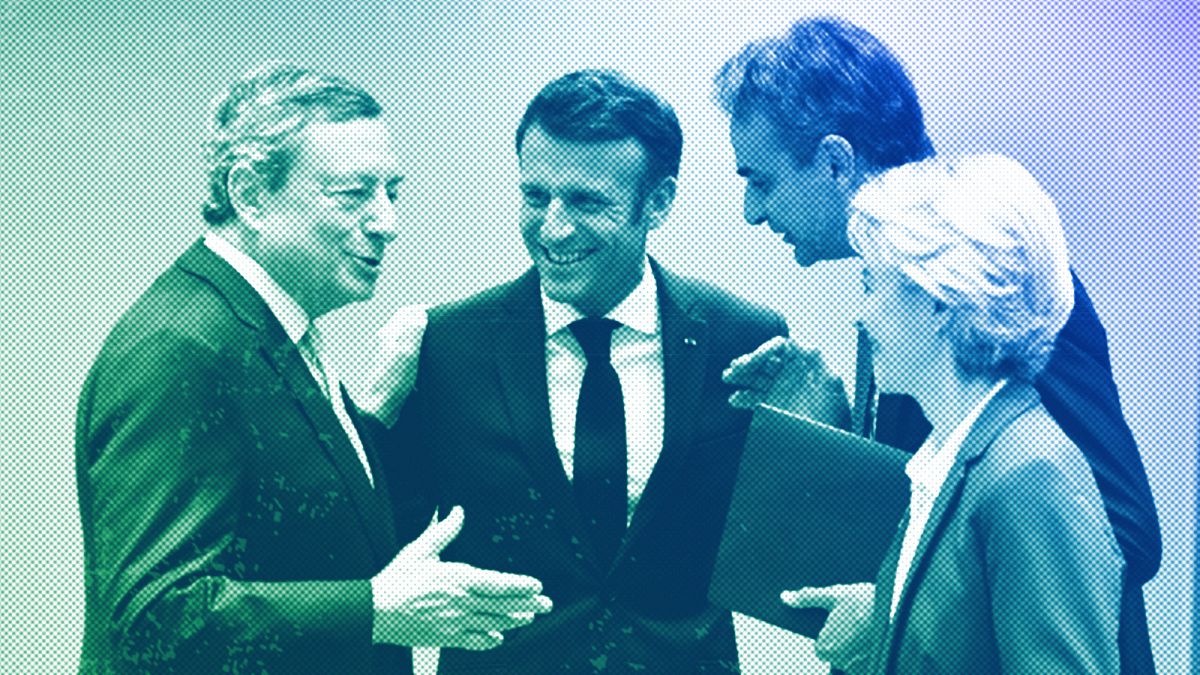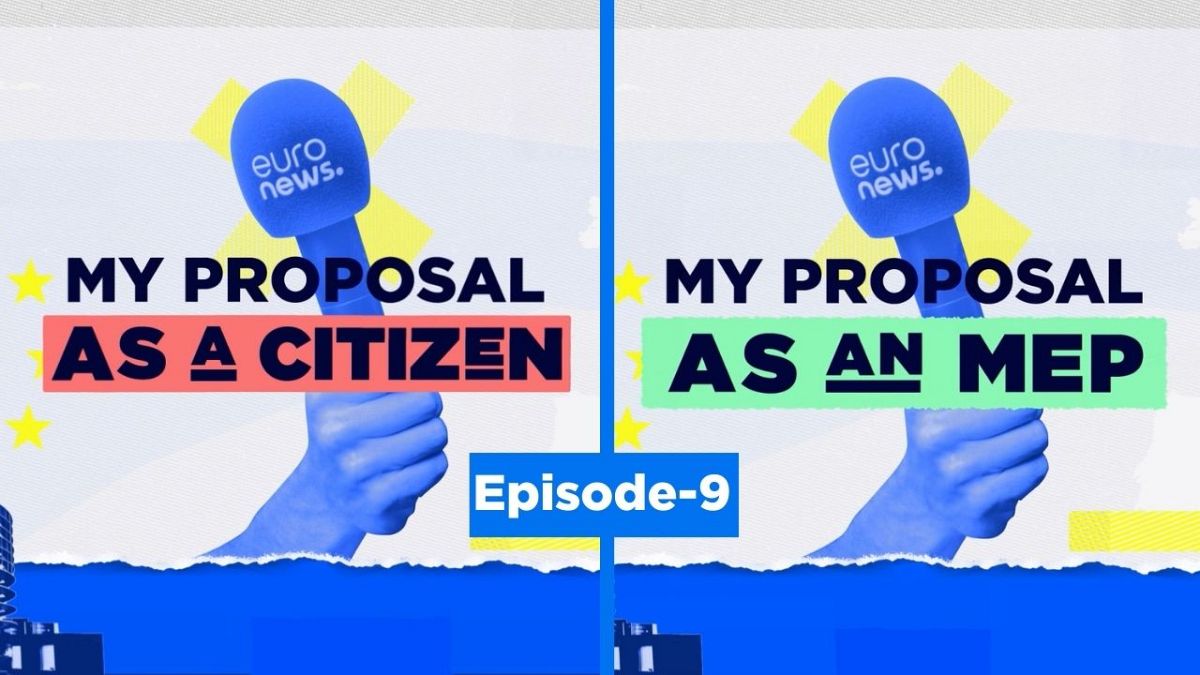The Greens’ Terry Reintke has pitched her party as the antidote to “right-wing, authoritarian” forces that are trying to water down climate action as she campaigns ahead of June’s European elections.
In an interview with Euronews on Thursday, the 36-year-old German – one of two lead candidates fielded by the European Greens for June’s ballot – outlined her vision for upholding the embattled European Green Deal, the EU’s plan to become the first climate-neutral continent.
In recent months, Reintke’s Greens party has led criticism of the centre-right European People’s Party (EPP) – set to top the poll in June and remain the parliament’s biggest faction – for what they describe as attempts to water down the Green Deal in response to a wave of demonstrations among farmers.
Farmers’ protests led the European Commission of President Ursula von der Leyen to gradually row back on some of its environmental commitments with concessions, including loosening green requirements for accessing subsidies as part of sweeping moves to reduce the administrative burden on farmers.
Reintke’s solutions include “reshuffling” the bloc’s farming subsidies to allocate funds according to ecological and social indicators rather than the size of farms.
“Big agro-businesses basically get the biggest chunk of the agricultural subsidies. And we would like to turn that around, for example, by having a conditionality when it comes to ecological and social standards,” Reinke explained, adding that the Greens also supported a cap on maximum subsidies to ensure a fairer distribution to smaller family farms in Europe.
Reintke also hailed the Green Deal as a “part of the puzzle of making Europe a more secure continent,” and as the only way of restoring the continent’s competitive industrial edge.
“I always say that the Green Deal and the question of security in Europe are two sides of the same coin,” Reintke explained, referring to how Europe had made itself “vulnerable” through its reliance on Russian fossil fuel imports in the years prior to the Kremlin’s full-scale invasion of Ukraine in 2022.
“So the Green Deal, having energy coming from wind and solar, having a sustainable, circular economy (…) having energy sources that are not dependent on autocrats, is part of a security strategy that Europe very direly needs, because we see that the world is becoming a more insecure place.”
She added that the Green Deal was the only viable European strategy, to ensure the bloc can compete with world powers such as China and the US in developing and deploying clean energies such as green hydrogen and battery technologies.
“Having a massive investment programme from the European level that incentivises member states to go down that road (of clean technologies) (…) is crucial,” Reintke said, presenting the Green Deal as the only way for Europe to compete with the heavily subsidised industries of China and the US.
In the US, the Inflation Reduction Act (IRA) – the Biden administration’s attractive green subsidy plan that offers generous tax breaks and rebates for green technology made in America – prompted fears of an industrial exodus out of Europe and saw the EU scramble to introduce counter-proposals such as the Net Zero Industry Act and the Critical Raw Materials Act.
The bloc has also recently launched probes into Chinese state subsidies into electric vehicles, solar panels and wind turbines amid fears the EU industry is flooded by cheap imports.
The antidote to a right-wing ‘backlash’
Reintke also said that a vote for the Greens was the best way of “defending democracy” against right-wing “backlashes against democracy, rule of law and freedom in Europe.”
“Citizens have the choice whether they want to have a more right-wing majority in the European Parliament, potentially having authoritarian, far-right forces influencing the programme of the European Commission (…) or (…) whether they want to have progressive, forward-looking, future-oriented policies,” she added.
While acknowledging the successes of Commission chief Ursula von der Leyen, currently campaigning for re-election, she also took a jab at her for losing “traction” during her mandate.
“I would lie if I would say that she (von der Leyen) didn’t push forward very positive things in these five years, but at the same time, we could see that especially towards the end of the legislature, she really lost traction,” she said, referring to her party’s attack against the Green Deal and attempts to bring down the Nature Restoration law, a bill designed to restore at least 20% of the European Union’s land and sea areas by 2030.
Von der Leyen is nonetheless pledging to continue to defend the Green Deal as a “clean growth model” in her campaign.
Asked about the EU’s response to the conflict gripping in the Middle East, and whether the bloc should consider sanctions on Israel for its response in Gaza to Hamas’ October 7 attacks, Reintke said: “I think that we should put pressure on Israel.”
She also argued the bloc could use its trade deal, the EU-Israel Association Agreement, to exert pressure on Tel Aviv, a proposal first tabled by Ireland and Spain, considered among the bloc’s fiercest critics of Netanyahu’s war in Gaza.
“We should, for example, use the Association Agreement that we have to say, look, what is happening right now is not good, also not for the security of Israel and Israeli citizens,” Reintke said.
This interview is part of an ongoing series with all the Spitzenkandidaten. The full interview with Terry Reintke will air on Euronews on May 10.


